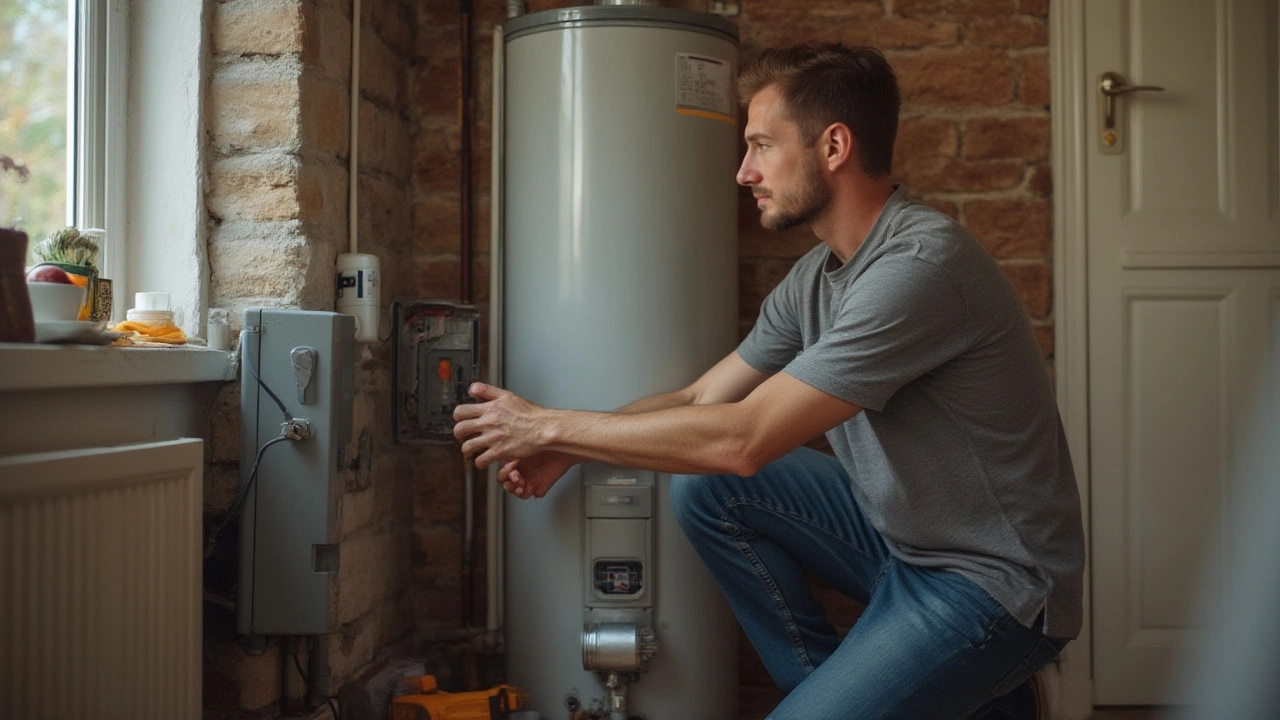Not sure if your hot water heater's on its last legs? This guide breaks down all the warning signs, plus some handy tips to help you know when it’s time for a replacement.
Home Maintenance Tips to Keep Your Appliances Running Smoothly
Every homeowner knows that a broken appliance can throw a wrench into the day. The good news? Most problems are preventable with a little regular upkeep. Below you’ll find straightforward steps you can take to keep your water heater, boiler, washing machine, dryer and kitchen gear in good health.
Check the Big Guys – Water Heaters and Boilers
Water heaters and boilers work hard to keep your home comfortable. A quick visual check once a year can spot sediment, corrosion or loose parts before they cause a shutdown. Turn off the power or gas, let the unit cool, then open the drain valve and let any water run out. If the water looks cloudy, it’s time for a flush. While you’re at it, inspect the anode rod – a simple pull‑out can reveal if it’s worn down and needs swapping.
For boilers, listen for strange noises and watch for any leaks around the pressure gauge. A pressure reading between 1 and 1.5 bar when the system is cool is normal. Anything higher could mean you need a bleed valve adjustment. If you notice rust, soot or a drop in heat output, call a qualified engineer. Trying to tinker with gas components without the right training is risky.
Keep Your Laundry Line Running – Washers and Dryers
Washing machines love clean filters. Pull out the lint screen and the pump filter every few weeks; clear out any fluff, hair or tiny clothing items. A blocked filter can cause “won’t spin” or “won’t drain” errors that look serious but are easy fixes.
Dryers are similar – empty the lint trap after every load and give the vent a quick vacuum every month. A clogged vent makes the dryer work harder, raises energy bills and can become a fire hazard. If the dryer feels unusually hot or takes forever to dry, the vent may need a professional cleaning.
Both appliances benefit from level placement. Use a spirit level to ensure they sit flat; uneven feet cause excess vibration, leading to bearing wear and noisy operation.
Kitchen Care – Ovens, Hobs and Extractor Fans
Ovens lose efficiency when the interior gets coated with grease and food residue. A monthly wipe‑down with a mild cleaner keeps the heating elements clear and prevents uneven cooking. If you notice the oven takes longer to preheat, check the seals around the door – cracked seals let heat escape.
Electric and gas hobs also need a quick glance each week. Look for burnt‑on spills and wipe them before they harden. For gas hobs, a smell of gas means a faulty burner or loose connection; shut off the supply and call a gas‑safe engineer.
Extractor fans are easy to neglect, yet they pull moisture and odors out of the kitchen and bathroom. Remove the cover, clean the blades with a damp cloth and vacuum any dust from the housing. Doing this every three months keeps the fan quiet and efficient.
When in doubt, note the make and model of the appliance, any error codes you see, and the symptoms. This info speeds up any service call and helps the technician pinpoint the problem faster.
Regular maintenance doesn’t have to be a chore. A few simple checks each season can save you time, money and the headache of a sudden breakdown. If a task feels beyond your comfort zone, especially anything involving gas or electricity, reach out to a qualified local expert – like Nuneaton Appliance Repair Experts – to keep your home safe and running smoothly.
Not sure if you need to switch off the breaker to reset your water heater? This guide walks you through the do's, don'ts, and safety tips in plain language.
Wondering if an electrician can fix your electric oven? This article breaks down which repairs electricians handle, when you need a specialist, and what's better left to the pros. You'll learn how electricians tackle different oven issues, get tips for choosing the right help, and find out what quick fixes you can try yourself. Save time and money by understanding the right steps to take when your oven stops working. Simple advice, no-nonsense answers, and expert facts all in one place.
Ever wondered how long extractor fans actually last? This article breaks down the real-life lifespan of extractor fans, the big reasons they fail early, and what you can do to keep them going strong. We'll cover the warning signs that you're due for a replacement, plus easy maintenance tips to get the most from your fan. With honest advice and easy tips, you'll learn exactly what to expect from the extractor fan in your kitchen or bathroom.
Understanding boiler problems can save you time and money, keeping your home cozy during winter. Boilers, with their intricate systems, need regular checks to ensure functionality. This guide explores how identifying unusual noises, leaks, and pressure issues can help in diagnosing potential problems early. Proper diagnosis not only prolongs the life of your boiler but also provides peace of mind. Learn actionable steps and tips to confidently tackle boiler problems.





